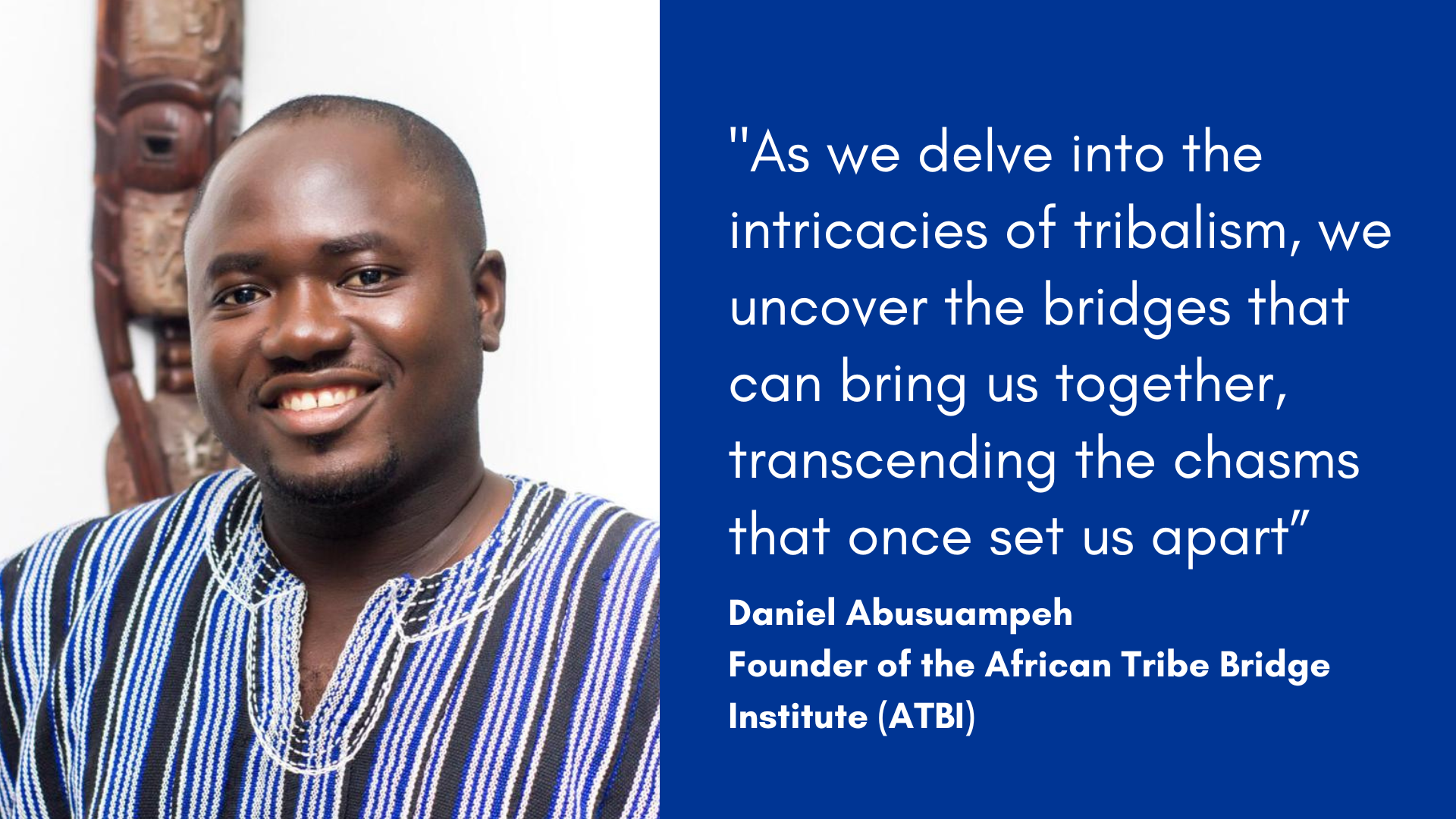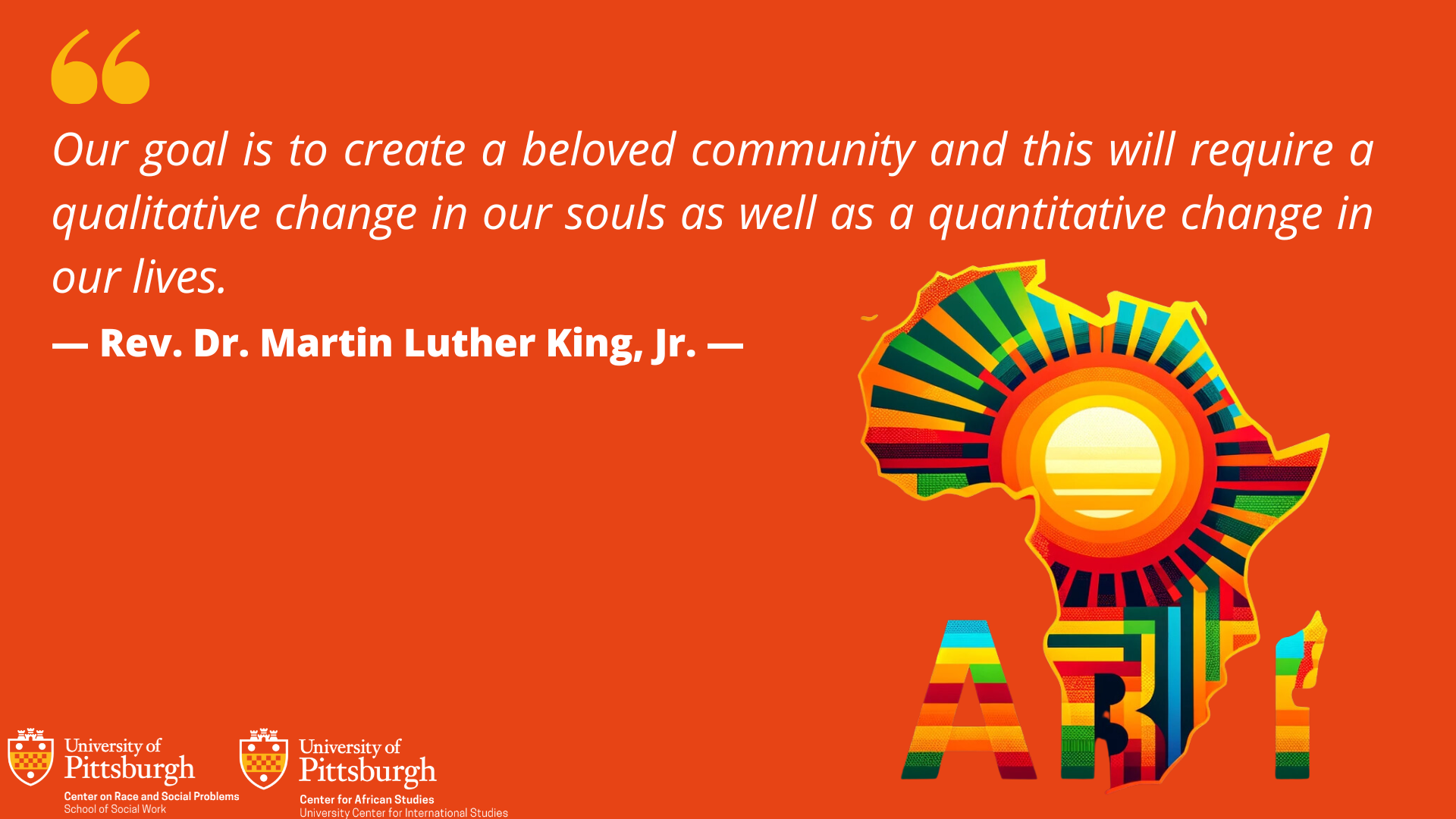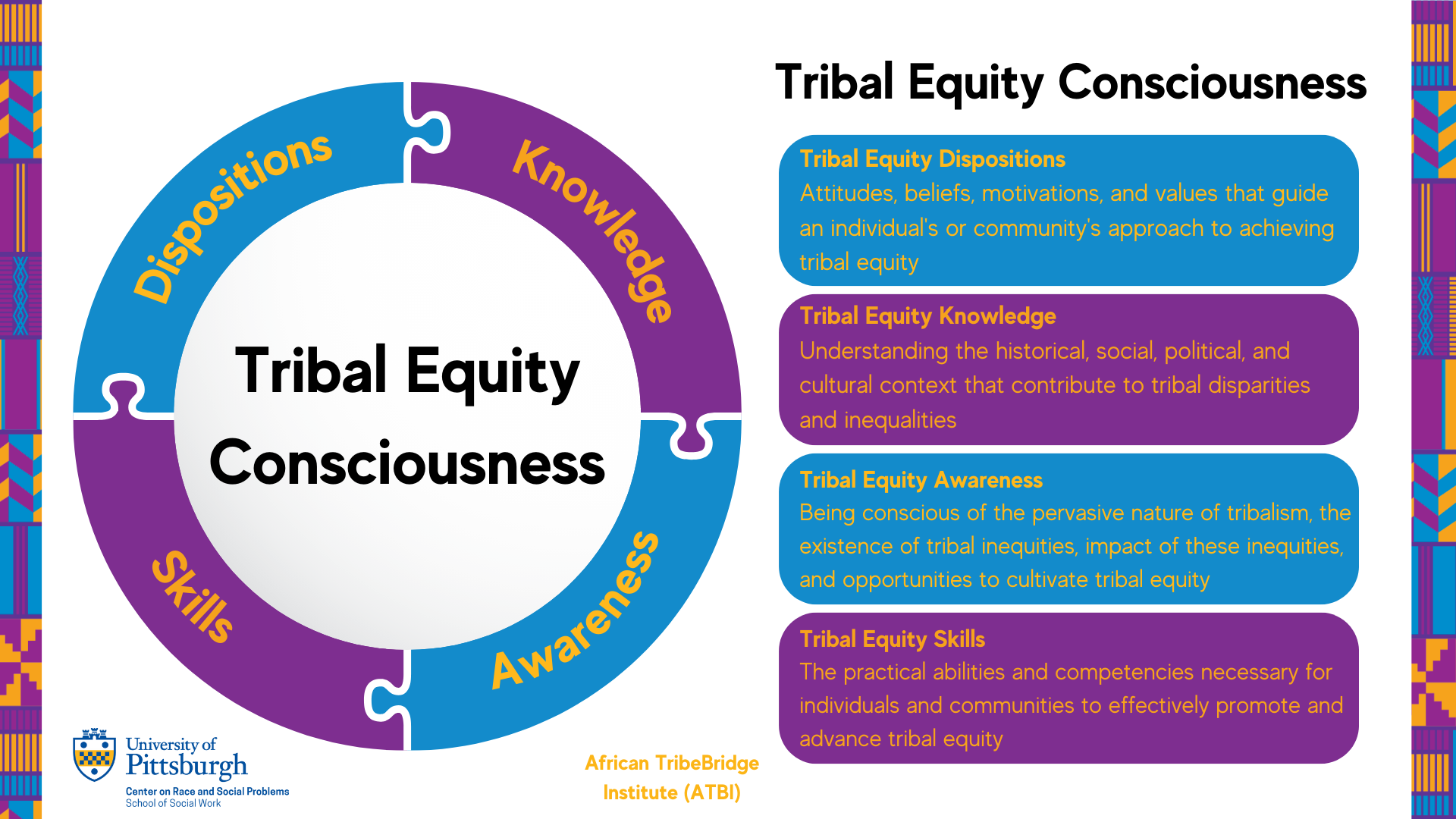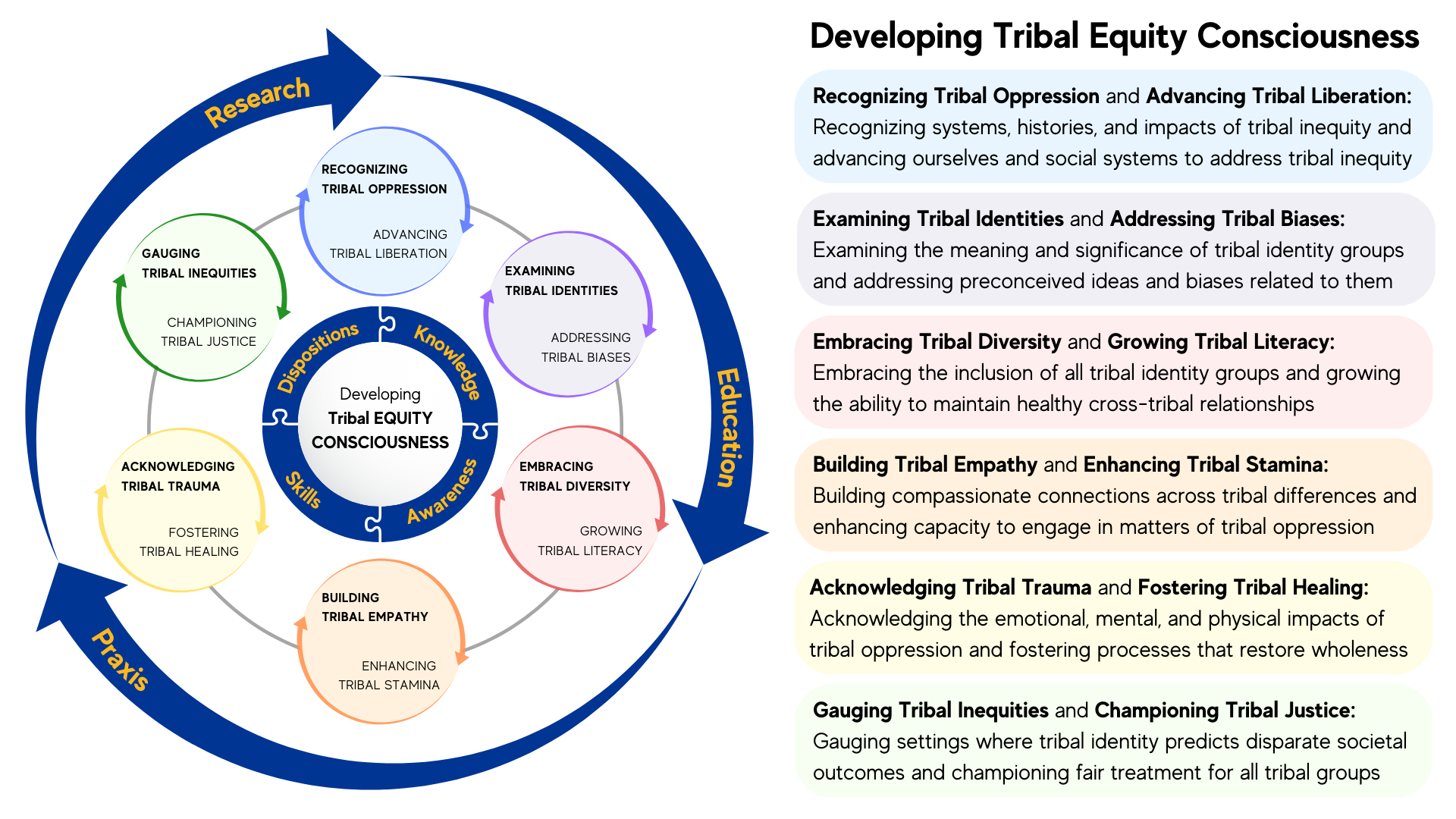
Meet the Founder: Daniel Abusuampeh
Nestled amidst the vast landscapes of Africa is an age-old issue: tribalism. Nestled amidst this complex tapestry is a visionary: Daniel Kwasi Abusuampeh, the architect behind the African TribeBridge Institute (ATBI). Established in 2023, ATBI was not just another organization; it was the embodiment of Daniel's dream for an Africa free from the shackles of tribal prejudices.
Born in the bustling heart of Ghana, Accra, during the 1980s, Daniel's journey was as vibrant as the kente cloth of his homeland. An artist at heart with the soul of a social worker, Daniel found his calling thousands of miles away in Pittsburgh, Pennsylvania. Yet, the pulse of Africa ran deep in his veins.
Every brushstroke he made, every narrative he crafted, whispered stories of an Africa untainted by tribal disparities. His art became a canvas of Utopian dreams—a portrayal of the Africa that was meant to be. It was here that Daniel found inspiration in the words of Nina Simone, believing that an artist's duty was to reflect the times. And reflect he did.
ATBI was not merely an institute; it was a movement. A movement to showcase the rich diversity of African tribes, to build bridges of understanding, and to pave pathways of unity. Daniel's mission with ATBI was clear: to equip individuals and communities with the tools and knowledge to combat tribalism, fostering an environment where the next generation could thrive without prejudice.
Daniel's vision for ATBI goes beyond just education. It serves as a beacon of hope, challenging and inspiring individuals to view tribalism from a fresh perspective. Through ATBI, Daniel hopes to transform passive observers into active change-makers, all united under the banner of tribal harmony.
In a world often clouded by division, Daniel Abusuampeh stands as a testament to what passion, vision, and relentless commitment can achieve. Through the African TribeBridge Institute, he continues his journey to etch an indelible mark on the annals of African history, driving forward a legacy of unity, understanding, and, above all, hope.
Check out Daniel's latest op-ed here!

Why do we need ATBI?
Tribalism, akin to systemic racism, remains a deep-rooted and pervasive issue in Africa. It operates as an underlying current, subtly influencing socio-economic and political decisions, relationships, and community dynamics. Much like systemic racism, tribalism becomes entrenched in societal structures, perpetuated by deep-seated biases, misconceptions, and, oftentimes, sheer ignorance of the rich tapestry that diverse tribes bring to the table. Historically, tribal conflicts have led to disunity, displacement, and, in severe cases, violence. Prominent African scholars, such as Chinua Achebe, have touched on the destructive nature of tribalism and its influence in destabilizing communities and countries.
However, this doesn't have to be Africa's narrative. We can rewrite the script. To combat such deeply embedded issues, we need an approach that's just as profound: "Systemic problems necessitate systemic solutions." Addressing tribalism requires understanding its origins, nuances, and manifestations in modern society. It demands a shift in perspective, moving from seeing tribes as divisive entities to appreciating them as vibrant units of a larger, cohesive African identity.
The African Tribe Bridge Institute (ATBI) emerges as a beacon of hope in this regard. ATBI is dedicated to creating bridges where walls once stood, fostering an environment of unity, mutual respect, and appreciation. Through the lens of the TribeBridge framework (illustrated below), ATBI uses an overabundance of resources such as narratives from diverse tribes, documentaries, scholarly articles, open dialogues, community engagements, and more. This institute doesn't merely aim to educate; it aspires to transform, nurturing individuals to champion unity in diversity, becoming ambassadors of reconciliation in their communities.
ATBI's vision isn't restricted to a singular tribe, community, or nation. It's Pan-African, echoing the sentiments of unity echoed by African visionaries like Dr. Kwame Nkrumah. The institute is built upon collective knowledge, enriched by contributions from various communities, making it a living, evolving hub of knowledge and action against tribalism. In essence, ATBI stands as a testament to Africa's commitment to unity, diversity, and a brighter, cohesive future.
The Tribal Equity Consciousness Framework

The Steps to Developing Tribal Equity Consciousness

Figure 2 - Critical systems thinking mental model of tribal equity consciousness development consisting of six interconnected, bilateral spheres of embodiment—reciprocal consciousness development behaviors stimulated through research, education, and praxis cycles.
Through the upcoming resource platform, learners & teachers can explore and engage the tribal equity consciousness framework and ultimately, cultivate the confidence and mindsets to be innovative and action-oriented agents for transformative social change.
Mission Statement
To educate, enlighten, and empower individuals and communities across Africa about the profound effects of tribalism, fostering an environment of unity, understanding, and collaboration for a harmonious and integrated continent.
Vision
A united Africa where tribal identities enrich the collective tapestry of the continent, driving progress, harmony, and mutual respect for all.